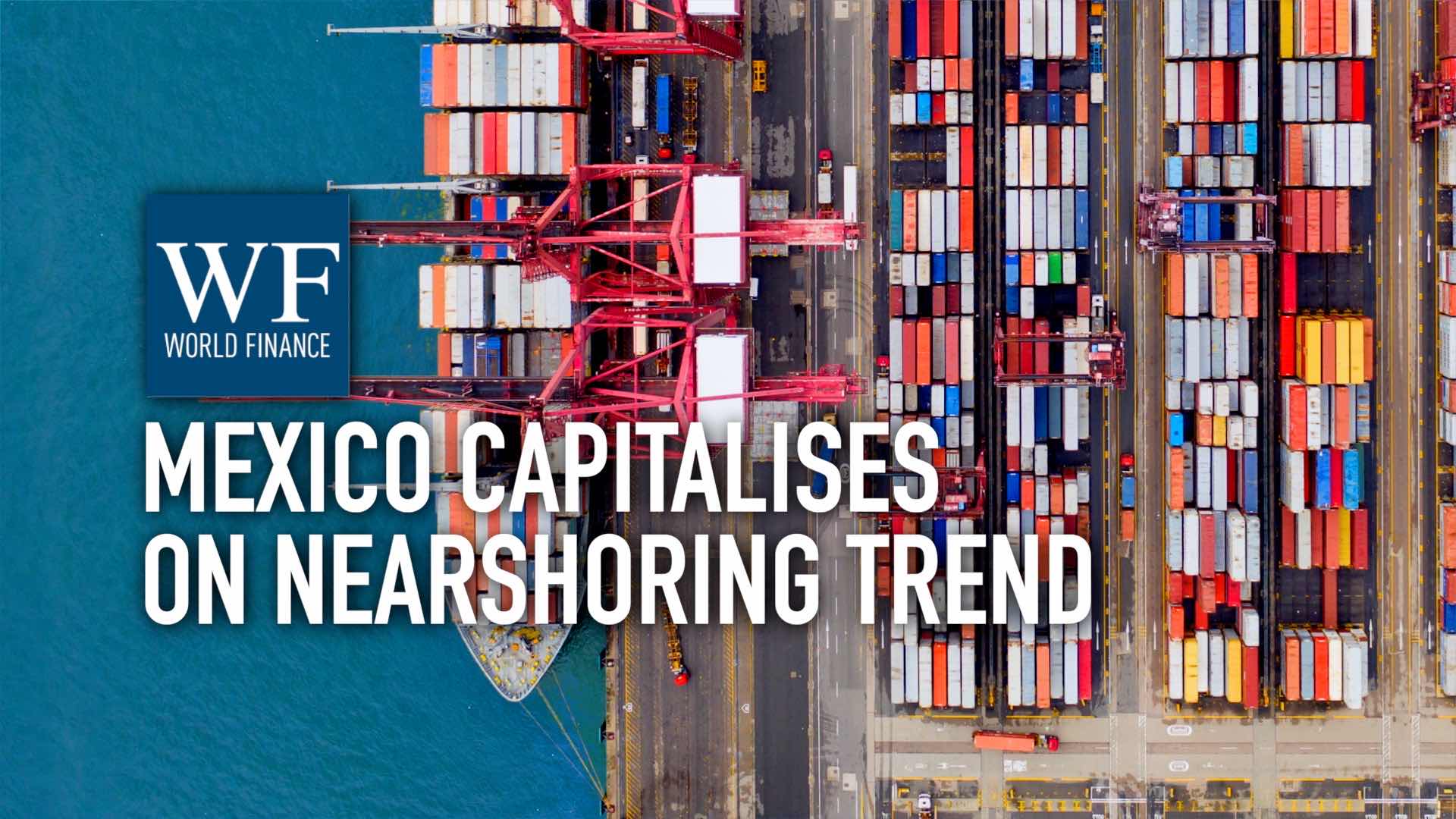Luis Gerardo Del Valle and Alejandro Aceves Perez on tax reforms in Mexico | Jauregui and Del Valle | Video
World Finance interviews Luis Gerardo Del Valle Torres and Alejandro Aceves Perez, Managing Partner and Tax Partner of law firm Jauregui and Del Valle, on Mexico's imminent tax reforms
Related:
Transcript
Mexico’s economy has undergone drastic change in recent years. The government is now looking to pass several tax reforms. Luis Gerardo Del Valle Torres and Alejandro Aceves Perez, Managing Partner and Tax Partner of Jauregui and Del Valle, talk about the proposed reforms and how they are expected to impact investors.
World Finance: Luis, tell us more.
Luis Gerardo Del Valle Torres: Economically speaking, it’s always stated that it’s better to have the resources in the hands of the businesses rather than in the hands of the government. The government is coming up with a 10 percent dividend tax, and that did not exist before, and it’s also increasing considerably the individual’s tax rate from 30 to 35 percent. So any tax reform that just intends to collect more revenue will always and has always been controversial.
World Finance: Alejandro, how will this impact on Mexico’s investment climate?
Alejandro Aceves Pérez: One of the objectives is to increase the collection of revenues for the government, so there is no doubt that it will affect the investment climate. However, we do not consider that this will have a significant negative effect, because the opportunities are there, the markets are there, and we still believe and consider Mexico to be a very attractive place for foreign investors.
Our advice to multinational companies is mainly to be careful to take care of the new regulations in order to avoid the negative consequence
World Finance: What advice would you offer multinational companies who could potentially be impacted?
Alejandro Aceves Pérez: As the tax climate becomes more complex, multinational companies are required to carefully analyse the way they have been performing operations in Mexico. Our advice to multinational companies is mainly to be careful to take care of the new regulations in order to avoid the negative consequence. From an operational perspective, everything becomes more complex, so they need to be closer to their tax advisors, to their legal advisors, so basically they do not have any future negative consequences with respect to the creation of liabilities. So everything basically gets to a more complete environment from a legal and tax perspective, that’s our view.
World Finance: And what opportunities are there for foreign investors? If you think about the various sectors, are there any that are specifically open to them and are there any that are off limits?
Alejandro Aceves Pérez: The real estate sector has been very attractive to both existing investors and new investors, either from Mexican sources or from foreign sources. That has been under a very dynamic environment very recently, so in the future for certain that is one of the major opportunities that our country’s offering. One of the off limits sectors, what we call the energy reform may provide the opportunity to open that sector to foreign investors. That has been under discussion and depending on how they perform the analysis, what the outcome is, we may be seeing more foreign investors coming to our country with respect to the energy sector, which now probably is closed to certain company profiles. That could be off limits at the moment but that might be opened in the very near future.
World Finance: The OECD commenced an action plan with respect to base erosion and profit shifting. Tell me more.
Luis Gerardo Del Valle Torres: What the report suggests is that governments come up with general anti-avoidance provisions, that they tighten the CFC. By CFC I mean controlled foreign corporations regimes, meaning that whenever the trans-nationals try to organise their business in a way that actually shifts profits from a higher tax jurisdiction to a lower tax jurisdiction, that that’s just included in the basis of wherever the company’s a tax resident.
Mexico is still a very powerful economy, there are a lot of opportunities
World Finance: How will this impact Mexico, and what is the country’s take on it?
Luis Gerardo Del Valle Torres: All of this tax reform will clearly impact the decision of trans-nationals, of where, when and how much to invest. Mexico is still a very powerful economy, there are a lot of opportunities and the Mexican government is relying on the fact that just increasing taxation with this 10 percent dividend tax shouldn’t affect the decisions of trans-nationals in a way that should affect the economy, or the investment that we’re expecting will come into country in future years.
World Finance: And finally, why should investors look to Mexico?
Luis Gerardo Del Valle Torres: The productions costs are still low, probably not as low as in China or as in certain other countries, but then the development of the Mexican economy, the services that are available, the privileged geographical location of Mexico, should be taken into consideration, so I think we’re clearly going to be competing strongly against great countries for foreign investment.
World Finance: Luis, Alejandro, thank you very much for your time
Alejandro Aceves Pérez: Thank you.
Luis Gerardo Del Valle Torres: Thank you for inviting us.

 Grupo Financiero Banorte: Supporting Mexico for 125 years
Grupo Financiero Banorte: Supporting Mexico for 125 years Banorte: Nearshoring trend could gain $168bn for Mexico over the next five years
Banorte: Nearshoring trend could gain $168bn for Mexico over the next five years
